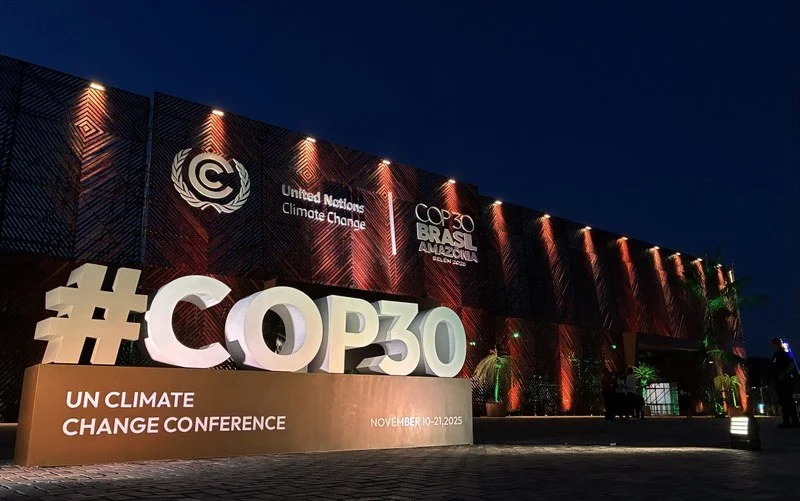COP30 Action Agenda: what it is and why it matters
With just days to COP30 in Belém, Brazil, the summit’s Action Agenda has been referenced multiple times in different conversations. The African Group of Negotiators (AGN) has been advised to engage with this action agenda ‘‘constructively but firmly’’. In this blog, we explain what the Action Agenda is and why it’s important in global climate action.
Background
At COP21 in Paris, France, the world formally acknowledged the urgent need to scale up global response to climate change. The Paris Agreement recognised that all stakeholders, both public and private, have a role to play in effectively implementing the outcomes of the summit.
One of the most unique features of an action agenda is that it engages stakeholders who do not negotiate climate agreements, even though they play a crucial role in their implementation.
These actors are essential in tracking the progress of implementation, promoting solutions, and highlighting the shortcomings of some of the proposed climate action interventions.
Developed by the COP30 Presidency, the current Action Agenda aims to mobilise voluntary climate action from different non-state actors, notably civil society, businesses, communities, and investors.
This action focuses on efforts to reduce emissions, enhance climate adaptation, and accelerate the transition to sustainable economies.
What the COP30 Action Agenda says
The Action Agenda has 30 objectives grouped into 6 broad ‘‘thematic axes’’. The objectives aim to fast-track the implementation of the first Global Stock-take at COP28.
This COP will develop a framework that galvanises action from the actors to implement what has already been negotiated and agreed between countries, also known as Parties. It’s based on this ambition that this COP has been christened the ‘implementation COP’’.
The six pillars of the Actrion Agenda cover interventions in climate mitigation and adaptation and finance, technology and capacity building, collectively known as the means of implementation (MoI).
Transitioning Energy, Industry and Transport
Together, the 3 sectors account for nearly 90 percent of the total global greenhouse gas (GHG) emissions, with energy leading at 73 percent.
Stewarding Forests, Oceans and Biodiversity
Oceans and forests are the primary carbon sinks, absorbing 50-60 percent of all human-driven emissions. The UN describes the ocean as the world’s greatest ally against climate change.
Transforming Agriculture and Food Systems
Agriculture is responsible for 10-14 of the total GHG emissions. The emissions rise to 37 percent when you consider the entire agrifood value system, as this analysis by FAO shows.
Still, the world needs to feed more than 8 billion people, 670 million of whom faced hunger in 2024, according to these figures from Action Against Hunger reveal. On the world’s current warming path, it’s estimated that climate change will cut crop yields in half by 2040.
Building Resilience for Cities, Infrastructure and Water
These floods in Pakistan are evidence of how climate impacts continue to put the livability of cities under strain. Roads, rail lines and airports are all under threat of destruction as climate impacts escalate.
In a world where 2 billion people do not have access to clean, safe drinking water, boosting access to the commodity and enhancing sanitation and waste management services is a life-saving intervention.
Fostering Human and Social Development
This pillar seeks to promote resilient health systems, boost education and create opportunities for all. It aims to ensure that culture and cultural heritage are protected from loss and damage by climate impacts.
Unleashing Enablers, Accelerators | Finance, Technology and Capacity-Building
This Action Agenda item aims to increase climate and sustainable finance, mainstream climate investments and insurance, artificial intelligence (AI), governance of climate action and planning and harmonise carbon markets.
For the COP30 presidency, this Action Agenda is an opportunity ‘‘to support the Sustainable Development Goals (SDGs) through solutions that elevate climate justice’’ while addressing structural inequalities in the world.
Says the President Amb. André Corrêa do Lago: ‘‘We aren’t starting from scratch: many initiatives are already underway. Our role is to connect, support and scale them to accelerate and expand climate action.’’

